
Register
Program
| 7:00 pm ET | Welcome and Introductions | Stephen Haskins, MD Jan Boublik, MD, PhD (moderators) |
| 7:05 pm ET | Foundation for POCUS as Part of ABA/ACGME/SCCM/ASA Educational Pathway | Hari Kalagara, MD |
| 7:10 pm ET | Clinical Indications with I-AIM Framework for Airway/Lung/Gastric/FAST/FOCUS | William Manson, MD |
| 7:25 pm ET | Review Recommendations on Exams Performed Under Supervision (Level 1) Compared to Interpreted (Level 2) | Yuriy Bronshteyn, MD |
| 7:35 pm ET | Education Resources Available for POCUS Education | Nadia Hernandez, MD |
| 7:40 pm ET | Common Barriers to Implementation of a POCUS Educational Curriculum | Melissa Byrne, DO, MPH |
| 7:45 pm ET | Q & A – Panel Discussion | All faculty |
| 8:00 pm ET | Adjournment |
Faculty
See all faculty disclosures.
Scientific/Education Planning Committee
Andrea Chadwick, MD; University of Kansas School of Medicine, Leawood, KS
Ki-Jinn Chin, MBBS, FANZC, FRCPC; Toronto Western Hospital, Toronto, Ontario
Stephen Haskins, MD; Hospital for Special Surgery, New York, NY

Jan Boublik, MD, PhD, is an assistant professor of anesthesiology at Stanford University. He graduated medical school and received a PhD in bioengineering from Medizinische Hochschule Hannover, Germany, including two years as a visiting scientist at the Massachusetts Institute of Technology, Division of Health Sciences and Technology, and he completed his residency at Brigham and Women’s Hospital in Boston, MA. His research interests include point-of-care ultrasonography (POCUS), functional outcomes after surgery, innovative technologies and techniques in anesthesia. He was a founding member of the ASRA Perioperative Point-of-Care Ultrasound Special Interest Group.
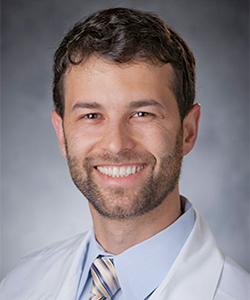
Yuriy Bronshteyn, MD, is an anesthesiologist and intensivist at Duke University Medical Center in Durham, NC. He uses POCUS clinically, mainly for crisis management in the ICU/OR. Dr. Bronshteyn teaches POCUS locally at Duke, regionally in the Southeast, and nationally/internationally for several medical societies. He also chairs the ASA's Ad Hoc Committee on Point-of-Care Ultrasound.
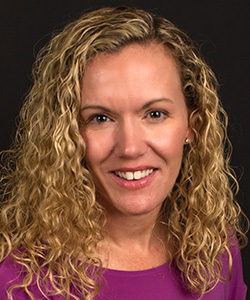
Melissa Byrne, DO, MPH, is a graduate of Michigan State University College of Osteopathic Medicine. After residency in anesthesiology at the University of Michigan, she worked in private practice in Virginia before returning back to her home in Michigan to complete a fellowship in Regional and Ambulatory Anesthesia. Her interests include resident education and Point of Care Ultrasound (POCUS). She has recently been named assistant director for POCUS where she is active in curriculum development.
Stephen Haskins, MD, is a regional anesthesiologist trained at the Hospital for Special Surgery in New York, NY. During his fellowship, Dr. Haskins developed an interest in Point-of-Care Ultrasound (POCUS), specifically focused cardiac ultrasound, lung ultrasound, abdominal ultrasound, and gastric ultrasound. Dr. Haskins is the co-founder and chair of the ASRA Perioperative POCUS Special Interest Group (SIG). He is also lead author for POCUS for the Regional Anesthesiologist and Pain Specialist Review Series in Regional Anesthesia & Pain Medicine (RAPM).
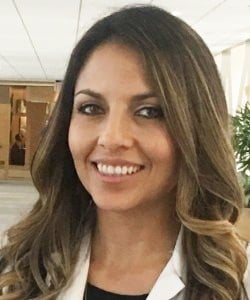
Nadia Hernandez, MD, completed her anesthesiology residency at the Icahn School of Medicine at Mount Sinai Health System in New York, NY, followed by fellowship training in regional anesthesia and acute pain medicine. She moved back home to Texas where she serves as an assistant professor of anesthesiology at the University of Texas (UT) at Houston McGovern School of Medicine. After one year, Dr. Hernandez revamped the regional anesthesiology fellowship and was promoted to director of regional anesthesiology at UT Houston as well as program chair of the Regional Anesthesia and Perioperative Ultrasound Fellowship. She is one of the co-founding members of the ASRA Perioperative Point-of-Care Ultrasound Special Interest Group.
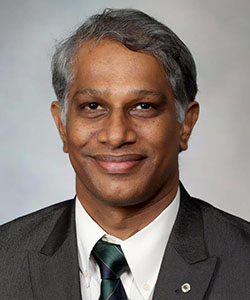
Hari Kalagara, MD, is passionate about regional anesthesia and has completed a regional anesthesia fellowship at Cleveland Clinic in Cleveland, OH. He has attained European Diploma in Regional Anesthesia (EDRA) by the European Society of Regional Anaesthesia and Pain Therapy and was awarded the ASRA Resident/Fellow of the Year Award in 2017. Dr. Kalagara served as Point-of-Care Ultrasound (POCUS) Director at the University of Alabama at Birmingham (UAB). Dr. Kalagara holds certifications in perioperative echocardiography and critical care echocardiography by the National Board of Echocardiography (NBE). Dr. Kalagara is currently working as an assistant professor in Anesthesiology and Perioperative Medicine at the Mayo Clinic with special interest in regional anesthesia and POCUS. He is currently the Chair of ASRA POCUS Courses.
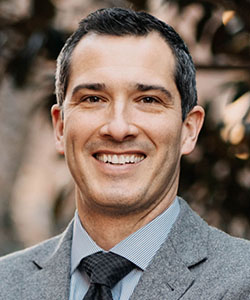
William Manson, MD, is an anesthesiologist at the University of Virginia in Charlottesville. He originally trained in emergency medicine and completed a fellowship in emergency ultrasound. Following ultrasound training, he became the associate director and then director of emergency ultrasound in the Department of Emergency Medicine at Emory University in Atlanta, GA. Then, he undertook training in anesthesiology at the University of Texas Southwestern/Parkland in Dallas, followed by a regional anesthesiology fellowship at the University of Virginia. Dr. Manson’s research focus is perioperative point-of-care ultrasound.
CME-CPD
To receive your CME certificate
- Download the Credit Claim Form.
- Indicate the number of hours you attended (credit will be verified against registration).
- Send the completed form to [email protected].
- Your certificate will be emailed to you within 1 week.
Educational objectives
After participating in this educational activity, participants should be able to:
- Discuss the foundation for POCUS as a part of the ABA/ACGME/SCCM/ASA educational pathway.
- Describe clinical indications with I-AIM framework for Airway/Lung/Gastric/FAST/FOCUS.
- Review recommendations on exams performed under supervision (Level 1) compared to interpreted.
- List education resources available for POCUS education.
- Discuss common barriers to implementation of a POCUS educational curriculum.
Target audience
The webinar is designed for any regional anesthesiologist and pain physician interested in learning the clinical indications and optimal methods for providing education/training in point-of-care ultrasound.
Accreditation and credit designation statements
| Credits by Day | Maximum |
| August 23, 2021 | 1.00 |
| Total Credits | 1.00 |
Physicians
The American Society of Regional Anesthesia and Pain Medicine is accredited by the Accreditation Council for Continuing Medical Education (ACCME) to provide continuing medical education for physicians.
The American Society of Regional Anesthesia and Pain Medicine designates this internet live activity (“course”) for a maximum of 1.00 AMA PRA Category 1 Credits™. Physicians should claim only the credit commensurate with the extent of their participation in the activity.
PAs (Physicians Assistants)
AAPA accepts certificates of participation for educational activities certified for AMA PRA Category 1 Credit™ from organizations accredited by ACCME or a recognized state medical society.
Physician assistants may receive a maximum of 1.00 hours of Category 1 credit for completing this program.
Nurse Practitioners
The American Association of Nurse Practitioners (AANP) accepts AMA PRA Category 1 Credits™ from organizations accredited by the ACCME. This activity has been approved for a maximum of 1.00 AMA PRA Category 1 Credits™.
Registered Nurses
Regulations dictate that only physicians may earn CME credits, however, many state Boards of Registered Nursing accept AMA PRA Category 1 Credits™ from organizations accredited by the ACCME. Attendees
are responsible for confirming their specific board’s acceptance of ASRA-provided credits. This activity has been approved for a maximum of 1.00 AMA PRA Category 1 Credits™.
The American Board of Anesthesiology® MOCA®
This activity contributes to the CME requirements for Part II: Lifelong Learning and Self-Assessment of the American Board of Anesthesiology’s (ABA) redesigned Maintenance of Certification in Anesthesiology Program® (MOCA®), known as MOCA
2.0™. Please consult the ABA website, www.theABA.org, for a list of all MOCA 2.0 requirements. Maintenance of Certification in Anesthesiology
Program® and MOCA® are registered certification marks of The American Board of Anesthesiology®.
ASRA is an ABA-approved provider and, as a service to ASRA members and participants, CME credits are reported to the ABA. Participants must include their correctly formatted ABA ID number (34567890) during the online evaluation and credit claim process
available at the conclusion of the activity. Once the online evaluation and credit claim process is closed, certificates will be issued and credits reported to the ABA. After this time, participants may request their CME certificate by contacting
[email protected], but ASRA will no longer report credits to the ABA, which will then be the individual participant’s responsibility.
International credits
Royal College of Physicians and Surgeons of Canada
The Royal College of Physicians and Surgeons of Canada has agreements based on the mutual recognition of credit points with the American Medical Association for live and web-based
(synchronous or asynchronous) educational events. You may submit your CME certificate directly for credit recognition of this accredited group learning activity (Section 1) as defined by the Maintenance of Certification program of The Royal
College of Physicians and Surgeons of Canada. For more information, visit: www.royalcollege.ca
European Accreditation Council for Continuing Medical Education (UEMS-EACCME)
The UEMS-EACCME has agreements based on the mutual recognition of credit points with the American Medical Association for live and e-learning educational
events. Each medical specialist should claim only those hours of credit that he/she actually spent in the educational activity. The EACCME is an institution of the European Union of Medical Specialists (UEMS): www.uems.net
Commercial support disclosure
No industry support has been received for this educational activity.
Disclosure and resolution of personal conflicts of interest
Click here to view all faculty disclosures. In accordance with the ACCME’s Standards for Integrity and Independence and related policies, ASRA is committed to ensuring balance, independence, objectivity, and scientific rigor in its CME/CPD activities. Those in control of the educational content disclose all relevant relationships (financial or other) with any ineligible company that they have had within the past 24 months. If an individual refuses to disclose, they are disqualified from participating. Disclosure information is evaluated and conflicts of interest resolved. Disclosure is made to participants prior to the activity. Participants are asked to evaluate the objectivity and independence. Off-label or investigational use of a therapeutic product is also disclosed.
Check Out These Upcoming Programs
-
Apr16
-
Mar21